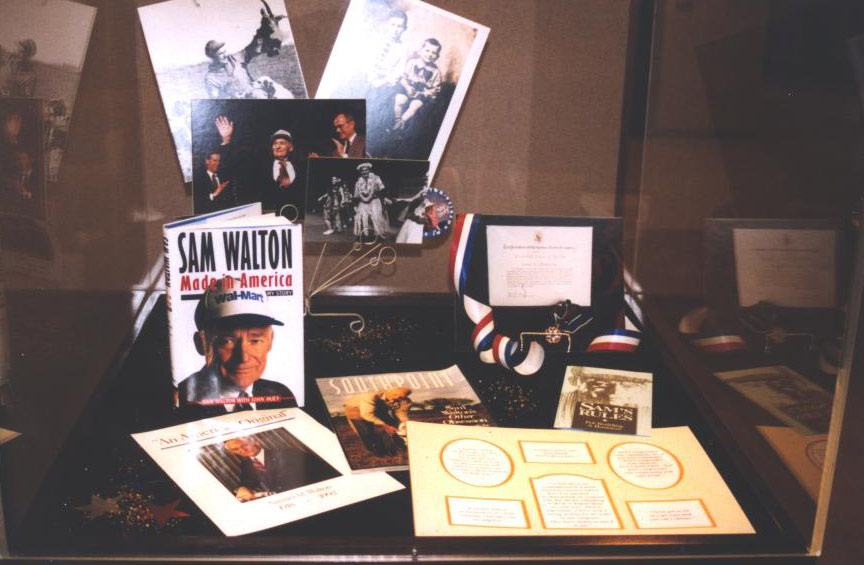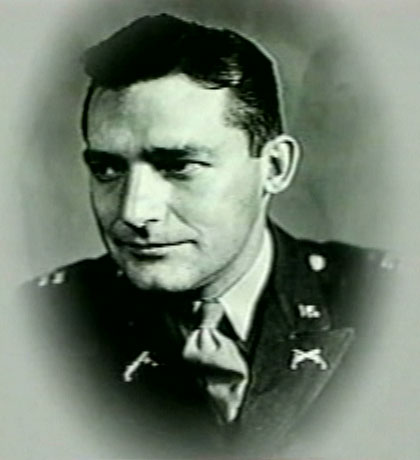
Sam Walton’s Legacy Extends Well Beyond Walmart
This is one of a series of stories looking back on the life and legacy of the leaders inducted into the Arkansas Business Hall of Fame in its first class in 1999.
It’s not uncommon for celebrities in entertainment to be known by one name – Madonna, Bono, Cher and Jay-Z would sit atop most lists. Some sports stars have pulled it off, as well – Pele, Ali and Shaq, for instance. It’s far less common in business, especially when the name is as common as Sam.
Make that Mr. Sam, however, and almost everyone in Arkansas – and many others who follow business across America – immediately know who it is with no other context required.
Sam M. Walton, a.k.a. Mr. Sam, earned a place among America’s top business titans, ranking right up there with John D. Rockefeller, Henry Ford, Warren Buffett, Steve Jobs and Bill Gates. Time included him among the 100 most influential people of the 20th Century, and President George H. W. Bush awarded him the Presidential Medal of Freedom, the nation’s highest civilian honor.
Walton also is a member of the Arkansas Business Hall of Fame, the Junior Achievement U.S. Business Hall of Fame and the University of Missouri Hall of Fame. In fact, Walton has been honored by so many organizations that his heirs eventually began turning down requests to put his name on buildings and programs or to enshrine him in halls of fame.

Pictured above: Sam Walton display at the 1999 Arkansa Business Hall of Fame.
His legacy is forever linked to Walmart, which he founded as Wal-Mart in 1962 and grew into the world’s largest retailer by helping millions of shoppers “save money” and “live better.”
His impact, however, runs deeper and wider than that of most business leaders. His success not only led to personal wealth and profits for shareholders but reshaped how retailing is practiced, influenced how modern leaders run their companies and led to philanthropic efforts that continue to improve communities around the globe.

Walton worked as a sales trainee at a J.C. Penny’s store in Iowa, served as a captain in the U.S. Army and owned a Ben Franklin variety store in Newport, Arkansas, before he and his wife, Helen, moved to Bentonville and opened Walton’s Five & Dime in 1950. They owned 15 discount stores by 1960, but he was 44 in 1962 when he opened the first Wal-Mart in Rogers. His idea was to build large general merchandise stores in small towns and to offer low prices on every item he stocked.
“Walton wasn’t alone in his venture into discounting,” entrepreneur.com wrote in its biography of Walton. “That same year, S.S. Kresge launched Kmart and Woolworth’s started Woolco, both of which could have easily crushed Walmart. But Walton was too far off the beaten path to attract the attention of these retail giants.”
Walton grew the chain to 18 stores by 1969, took the company public in 1970 and soon thereafter was opening stores at a rate of about 100 per year. Then he began experimenting with new formats, opening the first Sam’s Club in 1983 and the first Supercenter in 1988. In 1991, Walmart opened a store in Mexico City to start the company’s international expansion.

When Walton died in 1992, Walmart had annual sales of nearly $50 billion from 1,735 Walmart stores, 212 Sam’s Clubs and 13 Supercenters. As of January 2020, it had revenues of $524 billion, including roughly $38 billion from ecommerce, and it employed more than 2 million people in 11,766 stores around the world.
Most accounts of Walton’s business savvy focus on his low-price strategy and his idea of bringing big-box discount stores to rural America, but there was far more to it. For instance, Walton revolutionized retail supply chains by building regional distribution centers that efficiently restocked the stores. And Walmart was an early investor in technologies like point-of-sale systems that replaced cash registers and enabled fast, accurate checkout and better inventory tracking. In 1987, Walmart also installed the largest private satellite communication system in the United States, linking all its operations with its headquarters.
That same year, Sam and Helen created the Walton Family Foundation and the Walton Family Charitable Support Foundation as the primary outlets for the family’s philanthropy. As Helen Walton liked to say, “It’s not what you gather in life but what you scatter in life, that tells the kind of life you have lived.”
The Walton Family Foundation now gives more than $500 million each year, primarily to support efforts that improve education, environmental conservation and quality of life. Its grants have funded programs for public schools in cities like Atlanta, Denver and Washington, D.C.; charter schools in the Delta; marine biology stewardship projects, and mountain biking trails. Its more notable large-scale projects include funding for the Walton Arts Center in Fayetteville and Crystal Bridges Museum of America Art in Bentonville.
The Walton Family Charitable Support Foundation is perhaps most known for its $300 million donation to the University of Arkansas in 2002, which at the time was the largest gift to a public university in the United States and the fifth largest to any education institution. Other contributions to the U of A include a $50 million gift to the college of business in 1998 and a $194.7 million donation in 2020 to establish the Arkansas Institute for Integrative and Innovative Research.
The family foundations are separate from Walton’s legacy of corporate philanthropy. Walmart and the Walmart Foundation, which was established in 1982, provide more than $1 billion annually in cash and in-kind donations that support local communities.
Walton also left a legacy on business management and leadership. While he demanded excellence, he was known for his personable style that focused respecting individuals, serving the customer and turning good ideas into action. Made in America, his autobiography, is considered required reading for students, entrepreneurs and executives. And his 10 “Rules for Building a Business” have been adopted by countless leaders. Perhaps one reason is that most of those rules center on the value of healthy relationships.
“I would like to be remembered as a good friend,” Walton once said. “That’s important. I have such a strong feeling for the folks in our company. They have meant so much to me.”
